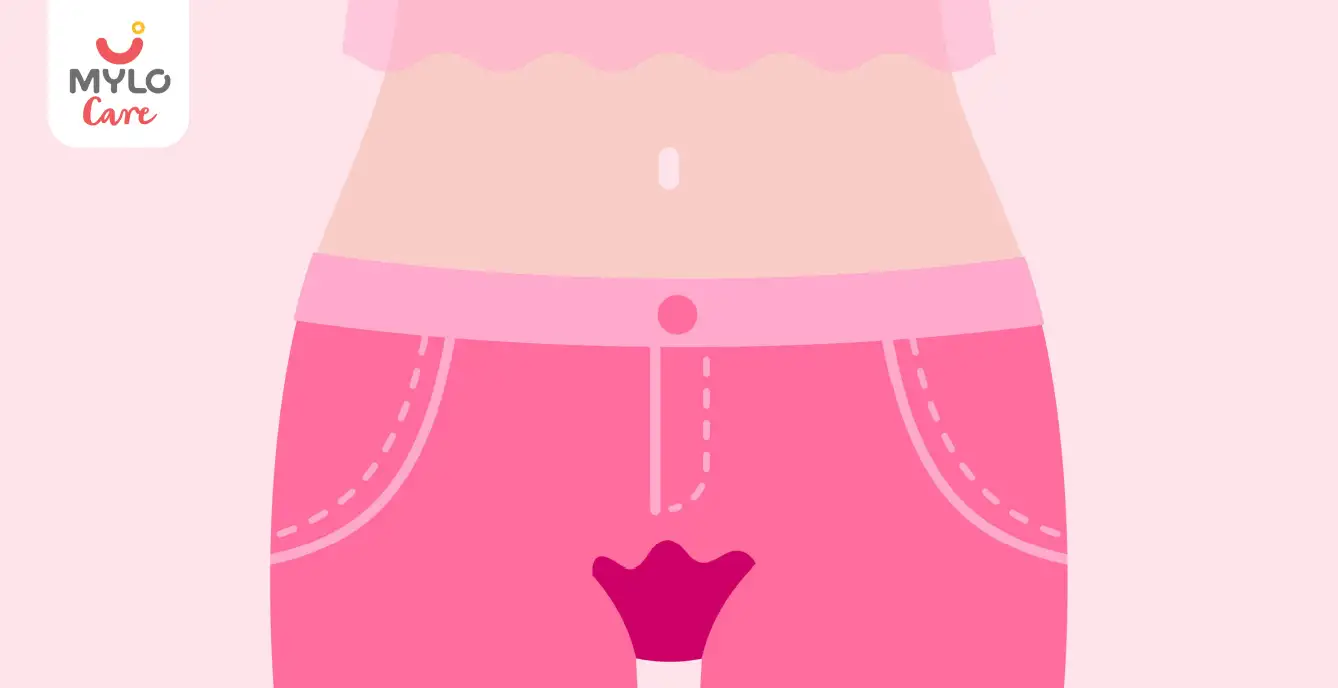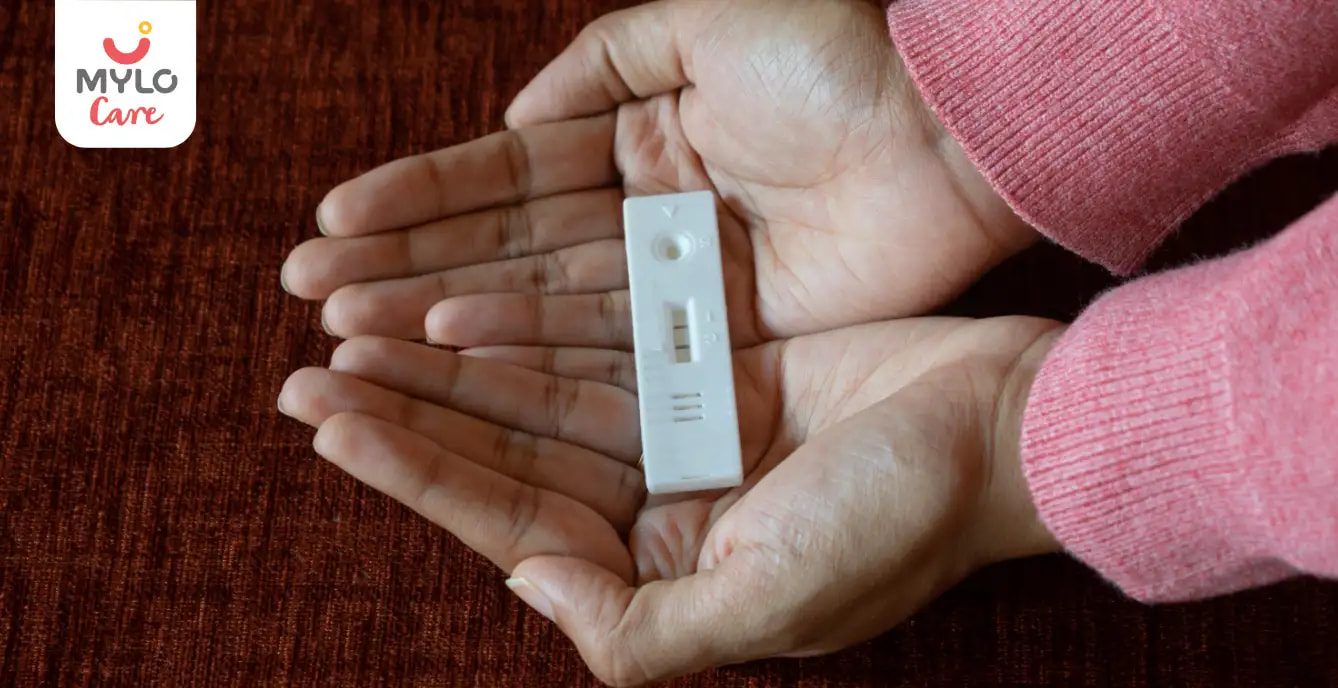In this Article
Ovulation
The Ultimate Guide on When to Take Ovulation Test After Period
Updated on 19 December 2023
If you've ever wondered when the best time to take an ovulation test is after your period, then you've come to the right place! Understanding your menstrual cycle and tracking ovulation can be instrumental in your journey towards conception or simply gaining a better understanding of your body. In this article, we'll explore everything you need to know about when to take ovulation test after period.
What is an ovulation test?
Before diving into the details of when to take an ovulation test after your period, it's important to understand what an ovulation test is and how it works. An ovulation test, also known as an ovulation predictor kit (OPK), is a tool used by women to track their fertility and determine the most fertile days in their menstrual cycle. It detects the presence of luteinizing hormone (LH) in urine, which surges just before ovulation occurs.
When to take ovulation test after period?
Timing is crucial when it comes to taking an ovulation test. After your period ends, you may be wondering when is the best time to start testing for ovulation. The answer depends on the length of your menstrual cycle.
Typically, it is recommended to start testing around 10 to 12 days after the first day of your period if you have a regular 28-day cycle. For women with shorter cycles, it's advisable to start testing a few days earlier, around day 8 or 9.
On the other hand, if you have longer cycles, you may want to wait until day 13 or 14 to begin testing. It's important to note that these are general guidelines, and every woman's body is unique. Tracking your menstrual cycle over a few months can help you pinpoint the best time to test ovulation.
When to take ovulation test: morning or night?
Another common question when it comes to ovulation testing is whether it's better to take the test in the morning or at night. The general consensus among experts is to take the test between 10 am and 8 pm. This time frame ensures that your urine is concentrated enough to provide accurate results. It's best to avoid excessive fluid intake for at least two hours before testing to prevent dilution of the urine sample.
While testing in the morning may seem convenient, it's not ideal because LH levels tend to rise in the afternoon. Testing later in the day allows for a more accurate detection of the LH surge. Remember to follow the instructions provided with your ovulation test kit for the best results.
You may also like: Signs Ovulation is Over: Your Guide to Understanding the End of Ovulation
How to interpret ovulation test kit results?
Understanding how to interpret the results of an ovulation test kit is essential to maximize your chances of conceiving. The kit typically consists of test strips that display the results as either positive, negative, or with a faint line. Here's what each result means:
1. Positive ovulation test
Ovulation kit positive occurs when the test line is as dark or darker than the control line. This indicates that the LH surge is happening, and ovulation is likely to occur within the next 24 to 36 hours. This is the ideal time to have intercourse if you are trying to conceive.
2. Negative ovulation test
A negative ovulation result happens when the test line is lighter than the control line or not visible at all. This means that the LH surge has not been detected, and ovulation is unlikely to occur within the next 24 to 36 hours. However, it's important to continue testing daily until you see a positive result or your period starts.
3. Faint line on ovulation test
Sometimes, you may notice a light line on ovulation test. While a faint line may indicate the presence of LH, it does not necessarily mean that ovulation is imminent. It's important to remember that a positive result is when the test line is as dark or darker than the control line. If you are unsure about the result, it's recommended to consult with a healthcare professional.
You may also like: Ovulation Bleeding: The Ultimate Guide to Causes, Symptoms and Management
Do's and Don'ts for Ovulation Testing
To ensure accurate results and make the most out of your ovulation testing, here are some important do's and don'ts to keep in mind:
Do's:
-
Do track your menstrual cycle to determine the best time to start testing for ovulation.
-
Do read and follow the instructions provided with your ovulation test kit.
-
Do test at the same time every day to establish a consistent routine.
-
Do use a stopwatch or timer to ensure accurate timing.
-
Do consult with a healthcare professional if you have any concerns or questions.
Don'ts:
-
Don't test with the first urine of the day, as LH levels are typically lower in the morning.
-
Don't drink excessive fluids before taking the test to avoid diluting the urine.
-
Don't rely solely on ovulation test results; consider other signs of fertility, such as changes in cervical mucus and basal body temperature.
-
Don't stress if you don't get an ovulation kit positive right away; it can take a few cycles to determine your ovulation pattern.
FAQs
1. What is the best time to test ovulation?
The best time to test for ovulation depends on the length of your menstrual cycle. It's generally recommended to start testing around 10 to 12 days after the first day of your period for a regular 28-day cycle. Adjust the timing accordingly if your cycle is shorter or longer.
2. Two lines on ovulation test, one lighter: what does it mean?
If you see two lines on your ovulation test kit results, with one line lighter than the other, it could mean that ovulation is approaching. Even a faint line on ovulation test indicates the presence of LH, which suggests that ovulation may occur in the next few days. It's important to continue testing daily to monitor the progression of the LH surge.
The Bottomline
Taking an ovulation test after your period is a valuable tool for women who are trying to conceive. By understanding when to take the test, how to interpret the results, and following the recommended guidelines, you can increase your chances of getting pregnant. Now that you have a comprehensive understanding of when to take ovulation test after period, it's time to put your knowledge into action and start tracking your fertility. Good luck on your journey to conception!
References
Su HW, Yi YC, Wei TY, Chang TC, Cheng CM. (2017). Detection of ovulation, a review of currently available methods. Bioeng Transl Med
Weddell S, Jones GL, Duffy S, Hogg C, Johnson S, Ledger W. (2019). Home ovulation test use and stress during subfertility evaluation: Subarm of a randomized controlled trial. Womens Health (Lond).



Written by
Anupama Chadha
Anupama Chadha, born and raised in Delhi is a content writer who has written extensively for industries such as HR, Healthcare, Finance, Retail and Tech.
Read MoreGet baby's diet chart, and growth tips

Related Articles
How Respiratory Syncytial Virus (RSV) Impacts Premature Babies Differently: What Every Parent Needs To Know
Adverbs: A Comprehensive Guide to help small children learn the usage of adverbs
Expand Your Child's Vocabulary with words that start with X: Easy, Positive, and Engaging Words, Animals, Countries, and Fruits
Unlocking Language Proficiency: The Ultimate Guide to Top 100 Sight Words for Kindergarten and Beyond
Related Questions
Influenza and boostrix injection kisiko laga hai kya 8 month pregnancy me and q lagta hai ye plz reply me

Hai.... My last period was in feb 24. I tested in 40 th day morning 3:30 .. That is faint line .. I conculed mylo thz app also.... And I asked tha dr wait for 3 to 5 days ... Im also waiting ... Then I test today 4:15 test is sooooo faint ... And I feel in ma body no pregnancy symptoms. What can I do .

Baby kicks KB Marta hai Plz tell mi

PCOD kya hota hai

How to detect pcos

RECENTLY PUBLISHED ARTICLES
our most recent articles

Stories
Must-Read Ruskin Bond Short Stories for Little Minds

Stories
The Top 10 Tenali Raman Stories You Must Read to Your Kids

Ovulation
Ovulation Bleeding: The Ultimate Guide to Causes, Symptoms and Management

Ovulation
A Guide to Recognizing Symptoms of Ovulation After HCG Injection

Ovaries
Bulky Ovaries Explained: What Every Woman Should Be Aware Of

Getting Pregnant
Ovulation: The Key to Maximizing Your Chances of Conception and Pregnancy
- The Ultimate Compilation of Fancy Dress Ideas for Young Kids
- How Long Does Sperm Take to Reach the Egg?
- Pregnancy Symptoms After Ovulation Day by Day: Exploring the Daily Progression
- Signs Ovulation is Over: Your Guide to Understanding the End of Ovulation
- Top 15 Akbar and Birbal Stories for Young Kids
- How Soon After an Abortion Can You Get Pregnant?
- PCOS and Sex: Exploring Impact on Health and Debunking Common Myths
- Papaya for PCOS: Exploring the Link and How It Can Positively Impact Your Health
- How to Boost Fertility in Your 30s: The Ultimate Guide
- Anovulation Meaning Explained: What You Need to Know About Its Causes & Treatment
- Basal Body Temperature: How It Can Help You Track Ovulation?
- Ovulation Pain: Is It Normal or a Cause for Concern?
- Special Home Remedies For Gas During Pregnancy
- PCOD Problem After Marriage: Debunking Common Misconceptions and Finding Solutions


AWARDS AND RECOGNITION
Mylo wins Forbes D2C Disruptor award
Mylo wins The Economic Times Promising Brands 2022
AS SEEN IN
















At Mylo, we help young parents raise happy and healthy families with our innovative new-age solutions:
- Mylo Care: Effective and science-backed personal care and wellness solutions for a joyful you.
- Mylo Baby: Science-backed, gentle and effective personal care & hygiene range for your little one.
- Mylo Community: Trusted and empathetic community of 10mn+ parents and experts.
Product Categories
baby carrier | baby soap | baby wipes | stretch marks cream | baby cream | baby shampoo | baby massage oil | baby hair oil | stretch marks oil | baby body wash | baby powder | baby lotion | diaper rash cream | newborn diapers | teether | baby kajal | baby diapers | cloth diapers |









